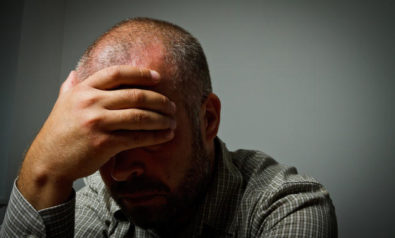In Malaysia, victims of trafficking are often treated like criminals.
Analysts claim human trafficking is rife on every continent on the globe; present in almost every country and, according to the recent annual report of the US State Department on Trafficking in Persons (TIP), the situation in Malaysia paints a grim picture.
Malaysia is mainly a destination country of trafficking for the purposes of prostitution and labor — manual or domestic — from countries in South and Southeast Asia. Victims may be held forcefully by their “employers” or have been compelled to stay in their situations through duress — methods such as threats of reporting them to the police, keeping their passports, and holding persons in debt bondage are common.
More Convictions
The US TIP aims to monitor and rank the progress of countries according to efforts they are making to combat the crime. So for the Southeast Asian federal constitutional monarchy, is the situation getting better? Lacking in statistics and efforts to monitor the situation, it is hard to say. A number of improvements have been cited such as implementation of the Anti-Trafficking in Persons (ATIP) statute, regional partnership agreements, and a national action plan to tackle human trafficking.
However, the 2013 report says more needs to be done. What is apparent is that prosecutions have been ramped up against those complicit in trafficking, but this has not translated into more convictions.
While the identification of traffickers and, subsequently, the rescue of victims is a good thing, there is much criticism of the way victims are treated and the care they receive. Apart from the humane aspects of their immediate situation, victims constitute a key part of the prosecutorial process and their cooperation can be harnessed for law enforcement purposes.
Criminals Rather Than Victims
Victims, once identified, are placed in 24-hour custody, and a sessions court judge can provide a 14-day interim protection order; after which they will be placed in a shelter. If needed, a three-month protection order can be requested, during which time the victim will need to remain in a government-run shelter while their evidence is recorded. If the victim agrees to testify, they will participate in the court proceedings — if not, they will be repatriated.
The number of cases have admittedly increased over recent years, but convictions remain low. The legal reasoning behind most of these is a failure to prove a prima facie case. A closer look at cases will uncover discrediting and distress of witnesses, who have endured long trial periods and ill-treatment.
A common complaint among victims is the fact that they are held in the shelters for such long periods of time, with little or no contact to the outside world, restricted movements, and little to do. This frustrates them, leaving them depressed and in some cases, suicidal. By the time the trial comes around, all victims want to do is go home.
In the labor dispute case of Spektra Alucast Sdn Bhd vs Vietnamese Workers, the men were kept in a male shelter for trafficking victims in Malacca, a small state in the south of Malaysia. They were detained for seven months, with no access to the outside world except for meetings with their counsel, NGOs, or to attend court.
Their state during this period had deteriorated to depressed and desperate, and the only thing they wanted was to return to Vietnam. They were treated physically well, but other factors took a bearing on their health: for example, being kept in the dark about court proceedings; being transported to and from the court house in Selangor (a substantial journey of approximately 100 miles); and being handcuffed and kept in lock-up while waiting to attend court, and not provided with food or water during this process. In other words, they were treated like criminals rather than victims.
In another case, victims were actually kept in the same cell as their perpetrators due to no shelter facilities being available at the time. It then could not be of any surprise that none of them wanted to speak against the traffickers. Some cases have been noted as ongoing for over 12 months. Placing a witness to testify after this amount of time has little merit as minimal detail on facts can be remembered after this period.
All victims want is to go home – that is what they associate with being safe. But it is not always the case, as they will go back to no job and are at risk of being re-trafficked.
Victim-Centric Approaches
Little attention is also placed on the needs and experience of the victim. As a victim of human trafficking, they have gone through potentially enormous psychological and physical trauma and abuse. However, there are no rehabilitative or protective measures other than rudimentary medical attention.
Besides going home, particularly in the case of labor trafficking, victims want their unpaid wages but recovery of this is dependent on the goodwill of helpful NGO workers, rather than state support. The state’s priority and intention with victims is solely to garner their cooperation during trials and are, therefore, acting in their own best interests. However, adopting more victim-centric approaches would encourage victims to assist as witnesses; for example, a reflection period, right of residency and the ability to work while they are waiting for proceedings to go through, would all positively enhance this process.
Several positive outcomes have indeed been achieved through the efforts of the Coalition to Abolish Modern Day Slavery (CAMSA) Malaysia – a body mandated by the ATIP statute to implement the National Action Plan. For example, it is now recognized that victims need to be provided with counseling; the Department for Social Welfare, together with the International Organization for Migration (IOM), is embarking on a project with trainee psychologists and counselors – there are currently between 100-120. Training is being rolled out through NGOs, though it is not yet robust enough, or regular.
Also, regarding a recent GSS News Agency case involving a newspaper distribution company that “employed” five Indian nationals to facilitate the distribution and sale of newspapers in various locations of Puchong, workers were not paid for between five and eight months and were maintained in slave-like conditions without sufficient rest or adequate food. The initial trial failed, however, CAMSA lawyers were successful in attaining work permits for the appellants while awaiting the appeal process, which resulted in the witnesses being more cooperative in aiding the justice process.
Adopting the human rights approach to tackling trafficking, and placing the victim’s needs at the forefront of anti-trafficking strategies, therefore, pays off in increasing awareness of human trafficking networks and prosecutions.
The views expressed in this article are the author's own and do not necessarily reflect Fair Observer’s editorial policy.
Image: Copyright © Shutterstock. All Rights Reserved
Support Fair Observer
We rely on your support for our independence, diversity and quality.
For more than 10 years, Fair Observer has been free, fair and independent. No billionaire owns us, no advertisers control us. We are a reader-supported nonprofit. Unlike many other publications, we keep our content free for readers regardless of where they live or whether they can afford to pay. We have no paywalls and no ads.
In the post-truth era of fake news, echo chambers and filter bubbles, we publish a plurality of perspectives from around the world. Anyone can publish with us, but everyone goes through a rigorous editorial process. So, you get fact-checked, well-reasoned content instead of noise.
We publish 2,500+ voices from 90+ countries. We also conduct education and training programs
on subjects ranging from digital media and journalism to writing and critical thinking. This
doesn’t come cheap. Servers, editors, trainers and web developers cost
money.
Please consider supporting us on a regular basis as a recurring donor or a
sustaining member.
Will you support FO’s journalism?
We rely on your support for our independence, diversity and quality.











Comment